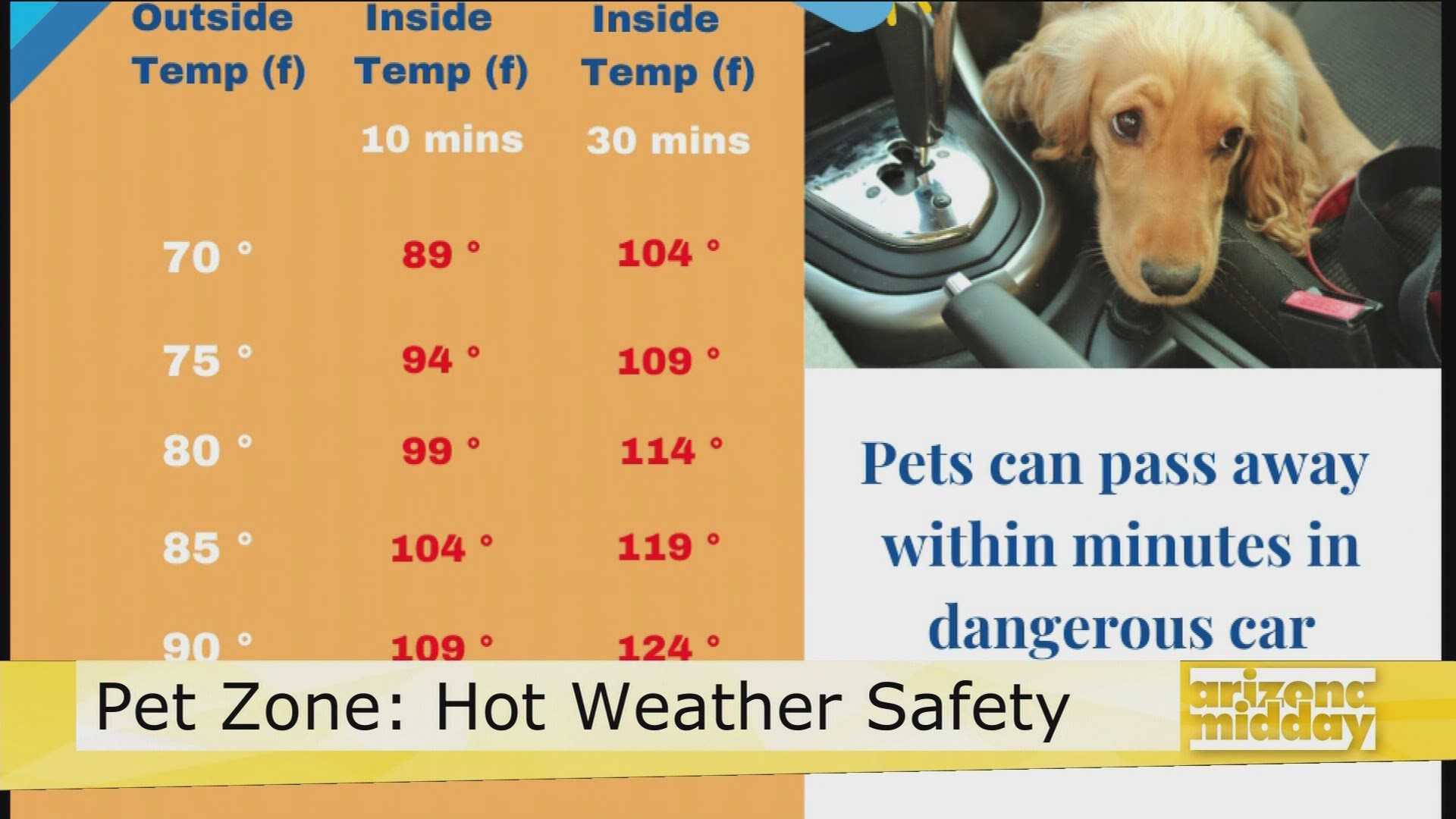PHOENIX — As the Valley transitions into summertime, pets, especially dogs, can be prone to a variety of different dangers that pet owners need to be aware of.
Dilo is an Alaskan Huskey puppy who was brought to the Arizona Humane Society emergency clinic suffering from a rattlesnake bite. She required two doses of anti-venom and three blood transfusions during her three-week stay at the clinic.
Dilo’s misfortune could serve as an important reminder of some steps animal owners can do to prevent costly medical bills.
Keep you pet on a short leash
Before it gets too hot in the Valley, dog owners like to bring their pets with them for hikes. The Arizona Humane Society suggests keeping dogs on short leashes while on the trails.
“Don't let your dog go out just wandering around, because they can get into potential hazards,” said Kelsey Dickerson with the Arizona Humane Society.
“Or going into tall grass where there might be animals waiting there for the pet, that the pet isn't sure is there. That could be when dangerous situations happen like rattlesnake, Javelina, or even scorpions.”
Keeping dogs and other pets out of tall grasses and bushes may keep their curiosity from getting the better of them.
Keep an eye out for dangerous plants
“Now is when there could be more spines and foxtails for pets to find,” said Dickenson. “And these, a lot of these, plants have little burrs at the end of their spines that can really burrow their way into our pets skin.”
Spines from foxtails and even some cacti can cause an infection in pet’s skin or lodge in a pet’s paw, making it painful to walk around. AHS suggests watching for signs that a pet may have stepped on a bur, or have one in its skin. Without the proper care, a small infection can occur leading to other health issues for the pet.
Keep up with preventative care
Keeping a pet healthy and up-to-date with shots and medication is an important step in allowing a pet to enjoy their time outdoors.
“We have mosquitoes coming out and fleas and ticks as well," said Dickenson. “So by having some preventative medications such as heartworm medication, as well as we flea and tick medication, you're going to be able to prevent some diseases such as heartworm disease as well as Tick Fever, which could potentially be fatal to your pet.”
If a pet is showing signs that something is wrong, AHS suggests contacting the ASPCA Pet Poison Prevention line. There, experts can help walk pet owners through simple diagnosis and treatment options.
“You know, anything can happen, especially when your pets are wandering around enjoying this weather,” said Dickenson.
“It's just really important to be able to have all these all of these different things in mind to be able to help give them the best chance at surviving an emergency because, of course, the best way to treat an emergency to prevent it from happening in the first place at all.”

